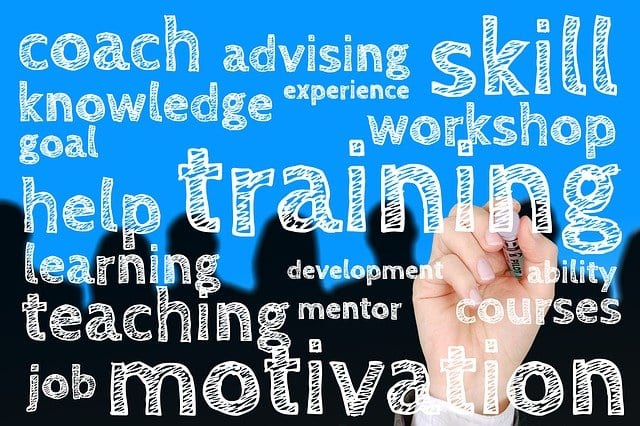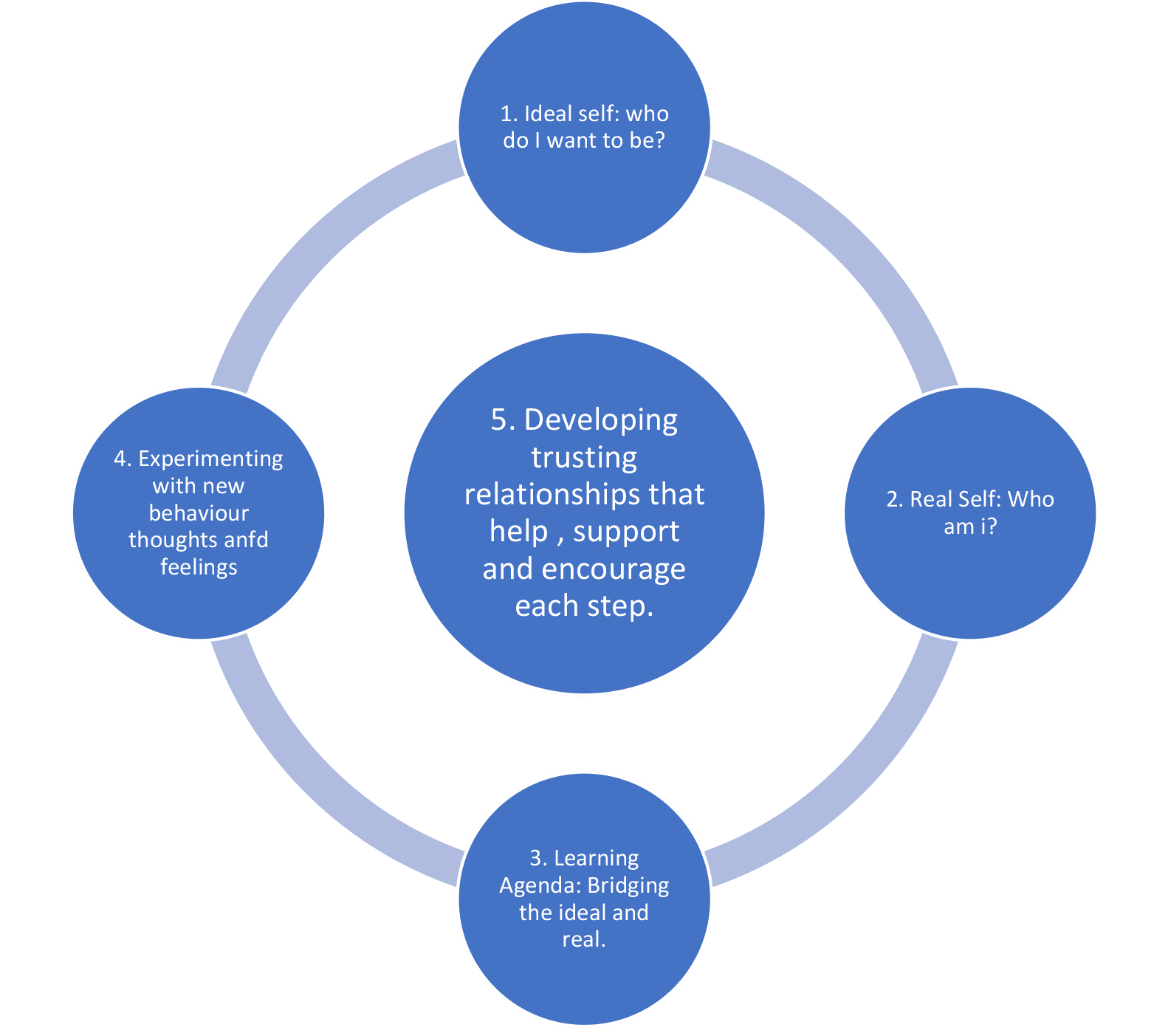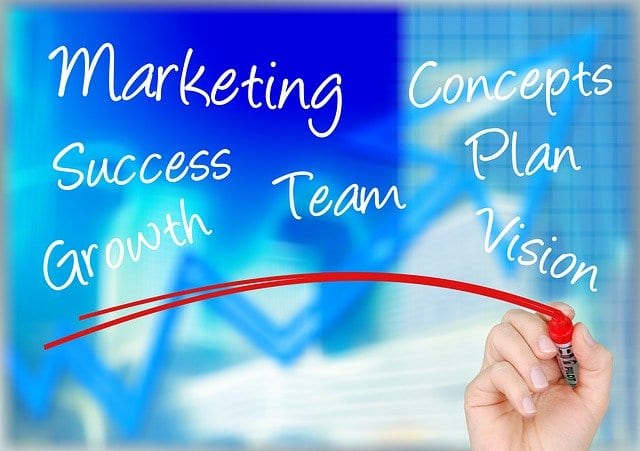Why Executive Coaching
Marshall Goldsmith author of “What got you here, won’t get you there” observes that
“adult behavioural change is the most difficult thing for sentient human beings to accomplish”.
This goes some way to explaining why executive coaching is important.
Executive coaching is one of the fastest growing professions in the world. So much so that it has become virtually impossible to know what is of value, what is a harmless waste of human resource time and money and what is potentially detrimental or dangerous.

Regarding what is dangerous, some executive and life coaches are essentially practising psychotherapy without a license. This is a grey area. It creates uncertainty for anyone purchasing coaching services and it also represents a significant ethical challenge.
Conflicting Objectives
In addition, conflicting objectives can arise when executive coaching focuses on clients’ performance rather than on their development.
Performance coaching is informed by an analysis of clients’ strengths and weaknesses considered relevant by a sponsoring organisation, whereas developmental coaching gives priority to the clients’ wider learning and development needs.
Contact Geoff to discuss further.

Executive Development – The Key Element
The bottom-line is that any type of leadership development or executive coaching that does not enliven the awareness from which the executive operates is unlikely to create long-term value for either the executive or their sponsoring organisation.
Enlivening awareness at the individual level requires a journey of self-discovery. This is really hard work which probably explains why there so few really great leaders. Most are struggling! It also explains why executive coaching can promise so much value.
In a sense it not that change is difficult; rather it is the capacity to be honest with ourselves, to look past our perceptual filters and admit that we need to change that is hard. Client’s need someone who can angle the mirror gently back towards them, so that they can see past their filters and connect with how they really are, as perceived by others. This is what good developmental coaching is about.
Effective coaching works with vulnerability
Change requires a capability to be vulnerable. Rather than trying to avoid or defend vulnerabilities, clients’ need to work through them. This requires conscious action and an intentional commitment to change. Here are the key elements of a coaching model for intentional change:

Figure 2: Model for Intentional Change (Adapted from Boyatzis et al, 2007)
The client’s strengths lie in the overlap between the ideal self and the real self. Gaps between the ideal self and the real self can be regarded as weaknesses. The learning agenda for the executive coaching assignment may either leverage the strengths or focus on the gaps. The learning cycle is enabled by a high trust relationship between the executive and the coach.
Having a structure for achieving behaviour change is useful. It provides a scaffold for the client and they are less thrown off course by externalities. The executive coaching relationship provides the required accountability support as the client experiments with new behaviours until new norms become established.
The executive coach knows that behavioural change is difficult because the underlying requirement of acknowledging that change is necessary requires a vulnerability and an honesty that can be extremely uncomfortable.
Coaching works when the coach can empathetically catalyse their client’s discomfort as an energy source for change. As Marcel Proust observed;
‘the real voyage of discovery consists not in seeking out new landscapes but in having new eyes’.
Great coaching is about enabling the client to see for the first time what was already clearly visible.
Every individual is different. Therefore, an executive coach with a limited or inflexible repertoire is likely to struggle at the developmental level. The best executive coaches will have a wide-ranging, creative, individually designed, and compelling repertoire of leadership coaching models to draw on for each coaching assignment.
An executive coach cannot give away what they have not first developed in themselves.
Why Executive Coaching Helps Build Emotional Intelligence
Performance focused executive coaching is effective in stable and predictable environments. However, uncertain, and complex environments are often driven by processes that are sub-cognitive.
In complex situations, high cognitive intelligence (IQ) is a threshold competency. That means you need it for survival. However, emotional intelligence (EQ) is a much better predictor of workplace performance than IQ.
Coaching for Emotional Intelligence
EQ can be thought of as the intelligent use of emotion. As such it encompasses a “mixed bag” of the traits and preferences relevant to effective leadership and productive workplace relationships.
An EQ profile will reflect the “core values” of a senior executive, captured in their self-perception and in their relationship style. Therefore in the coaching relationship, it is helpful to connect changes and goals with the values of the client.
Furthermore, most senior executives do not recognise the EQ competencies of their teams or direct reports and therefore they cannot harness it as a resource.

Effective Coaching for EQ
In the arena of consulting psychology, definitions of intelligence continue to be debated. However, the Emotional Capital Report is a well-researched tool developed by Roche Martin based on the ten skills most associated with leadership performance and that can be improved and deployed for greater workplace productivity.
Contact Geoff to discuss further.
Key Elements of EQ
Self-Knowing: Knowing how you feel and recognising how your feelings impact on your opinions, attitude, and mood.
Self-Confidence: Accepting and liking yourself as demonstrated by an ability to maintain motivation even when things are challenging.
Self-Reliance: Using your self-power to develop ideas, to choose between options and to make significant decisions.
Self-Actualisation: Demonstrated by an ability to maintain an enthusiastic commitment to long-term and challenging goals.
Straightforwardness: Ability to express your point of view openly while respecting that others may hold a different perspective or expectation.
Relationship Skills: Establishing and maintaining collaborative and rewarding relationships based on positive shared expectations.
Empathy: Listening, understanding, and responding to the feelings and thoughts of others.
Self-Control: Staying calm in stressful situations, maintaining productivity without losing control and projecting a composed, reliable presence.
Adaptability: Being tolerant of others and receptive to new ideas and different points of view.
Optimism: Having resilience and seeing the big picture, particularly in adversity.
An emotional capital self-report (ECR) can be completed in ten minutes to provide a comprehensive profile. It is an especially useful baseline for an executive coaching relationship.
In thinking about why executive coaching, ask yourself if the assignment is about perforOutlinemance or development. If it is about executive development, hire a coach with a broad range of experience, particularly in a leadership capacity. The ECR provides a useful baseline assessment for a productive coaching engagement.
To find out more of Emotional Capital Reports and to have a no-obligation discussion about executive coaching, contact Geoff.
Read more about our executive coaching services and leadership coaching models.